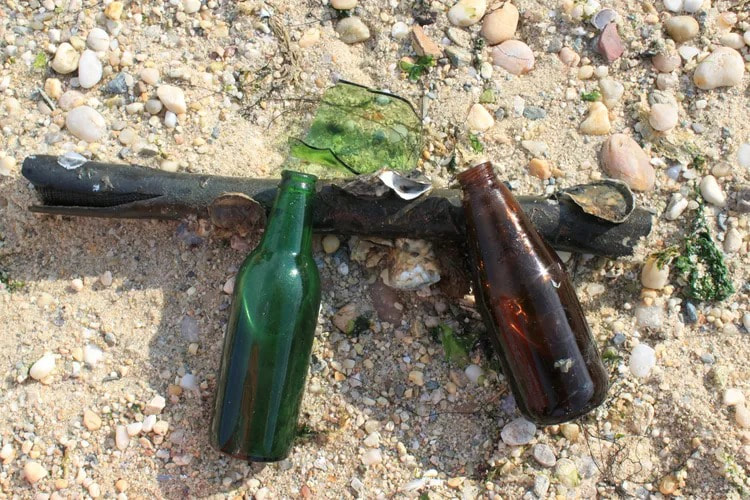Naturally, the warm weather lures us outside after being cooped up all winter. Perhaps you’ve already found yourself having some beach days or backyard gatherings. This all sounds fun until you realize you may make some harmful environmental decisions. Follow along below to learn about the actions to avoid so you can have a more eco-friendly summer!
1. Using Harmful Sunscreen
As we become more exposed to the sun during the summer, protecting our skin from sun damage becomes a bigger concern. However, many sunblock brands contain ingredients harmful to our marine ecosystems. So grab your sunblock and check the ingredients. If it contains any of the following chemicals, you may want to swap it out for a certified reef-friendly sunblock;
Oxybenzone, Benzophenone-1, Benzophenone-8, OD-PABA, 4-Methylbenzylidene camphor, 3-Benzylidene camphor, nano-Titanium dioxide, nano-Zinc oxide, Octinoxate, Octocrylene.
The National Oceanic and Atmospheric Administration (NOAA) states these chemicals cause coral bleaching, birth defects in sea urchins and mussels, decreased fertility in fish, and impair the growth of green algae. Look for the Reef-Friendly certification on your next bottle of sunblock to prevent damage to our marine ecosystem.
2. Blasting your AC
Walking into an air conditioned building sounds amazing after a long day in the sun, but hearing of the environmental impacts of air conditioning makes this much less desirable. According to an article posted by the Guardian, the US uses as much electricity on air conditioning alone than the UK uses as a whole, each year. The International Energy Agency (IEA) states that worldwide, air conditioners contribute 2 billion tons of CO2 into our atmosphere each year. This adds to the rising global temperatures which, ironically, will lead to even more air conditioner use. It’s important to keep these statistics in mind before running to the thermostat. Try to avoid running your air conditioners unless absolutely necessary, or attempt to use a fan first, as they require less energy. If you can’t live without air conditioning, perhaps try adjusting the temperature a few degrees higher. In the long run you’ll use less energy while still keeping your house cool.
3. Grabbing beef burgers at BBQs
Summer time barbecues are a great way to socialize, but an event like this typically leads to high meat consumption. The animal agriculture industry demands enormous amounts of water and land to operate. Also, animal agriculture makes up 18% of the total greenhouse gases released each year. So, if you plan to host or attend a barbecue this summer, consider suggesting or providing some vegetarian options. Even if switching to a complete vegetarian diet doesn’t work for you, choosing a meatless option once a week can add up to make a great difference.
4. You leave a trace
With the sunshine and beautiful weather attracting us to our beaches or parks, we must remember the importance of leaving no trace. As we’ve covered on our blog once before, the idea of ‘leave no trace’ consists of leaving the outdoors how you found it, with no litter, and causing no damage to vegetation or wildlife. Summer crowds definitely take their toll on the beaches, and trails that volunteers or park rangers work so hard to keep clean. By respecting nature, we not only show gratitude to those who maintain the land but we also give future visitors a chance to enjoy the beauty as well!
By Miranda Gonzales, The Long Island Pine Barrens Society
Sources:
https://oceanservice.noaa.gov/news/sunscreen-corals.html#:~:text=When%20we%20swim%20or%20shower,Coral%3A%20Accumulates%20in%20tissues.
https://www.theguardian.com/environment/2019/aug/29/the-air-conditioning-trap-how-cold-air-is-heating-the-world
https://www.cowspiracy.com/facts




